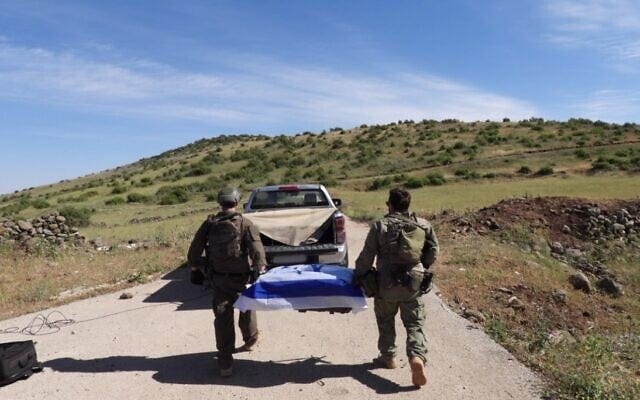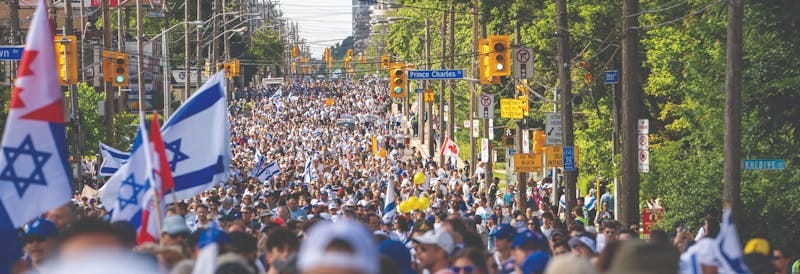Cohen
On May 18, 1965, Eli Cohen was hanged in Marjeh Square, Damascus. Israel’s most famous spy, Cohen was notorious for embedding himself into Syrian high-society from 1961 to 1965, feeding critical military intelligence back to Israel. Under his pseudonym, Khamel Amin Thabet, Cohen helped identify Syrian military infrastructure in and around the Golan Heights. His efforts helped lead the way to a swift victory over Syria (and Egypt and Lebanon and Jordan) in 1967.
On May 18, 2025 - the 60th anniversary of his execution - we learned that 2,500 items belonging to Cohen, while he lived in Damascus, were recently recovered by a top-secret Mossad operation in Damascus. These items included his passports, a handwritten final will, letters, and even keys to his Syrian apartment. On May 18, Mossad Director David Barnea and Prime Minister Netanyahu presented the materials to Cohen’s widow, Nadia, now 90 years old.
"Eli is an Israeli legend. He’s the greatest agent Israeli intelligence has had in the years the state existed. There was no one like him,” said PM Netanyahu.

Katz
On July 24, 1982, Aharon Katz - an Israel Air Force (IAF) weapon system operator - was flying over Syria when his plane was hit by a Syrian missile. Katz was killed, and over the next few years, his body and his kippa (yarmulke) were returned to his family in Israel. A part of him, however, remained in Syria: the watch he received from the IAF after finishing his pilots course in Israel. He was wearing it when shot down.
For years, the watch remained in Syria, its whereabouts unknown. However, in 2015, in the midst of the Syrian civil war, a Syrian general seeking to curry favour with the Israelis reached out to the Mossad, and advised that he had Katz’s watch. He was looking to make a deal. Mossad initiated an operation to retrieve the watch, and in January 2016, after triple-checking and cross-referencing serial numbers, in a ceremony with Katz’s surviving wife and family, his watch was returned.
At the ceremony, Donniel Hartman (of the Shalom Hartman Institute), who was Katz’s brother-in-law, said to the army, "We learn a lot about the IDF Ethical Code, about a military moral. The sensitivity and delicacy in which you have taken care of the family - is amazing. A military system which works in this way is something special. Thank you for this special ethicality. To the Mossad servicemen: we survive thanks to you and don't even know what you do…It is very easy to forget the dead, but a bereaved family never forgets. We cannot defeat death, but we can defeat forgetfulness. Thank you, for it being important to you to say you haven't forgotten.”
IAF Maj. Gen. Amir Eshel responded, “Whoever wants life must be strongly rooted in his past.”
Feldman
On May 11, 2025, we also learned that the Mossad and IDF recovered the remains of St. First Class Zvi Feldman, who went missing in Lebanon in 1982. Feldman was a tank soldier, who went missing with Sgt. First Class Yehuda Katz, and Sgt. First Class Zachary Baumel.

It was reported that Feldman’s body was recovered from “the heart of Syria,” and that the “complex and covert operation” was made possible by “precise intelligence” and other capabilities, including “intelligence research and collection efforts and many activities and operations in enemy territory.” Efforts to locate his body have been ongoing for decades.
“The operation to recover the remains was carried out by non-Israeli Mossad agents. The team operated deep inside Syria, dozens of kilometers from the Israeli border, to retrieve the body, while risking their lives. The agents…had a cover story and had been inside Syria for several years. In the past five months, following the fall of the Bashar al-Assad regime, there were breakthroughs in the case and an opportunity to recover Feldman’s remains.”
Why?
Israel faces no shortage of threats. Hamas, the Houthis, Hezbollah, Iran, the Palestinian Authority, the UN, not to mention the strife within her own government. Surely, her resources are stretched thin. Surely, manpower is needed to save lives, avert catastrophe, protect the Jewish Diaspora, and limit the impact of war.
So then what kind of nation risks its soldiers' and intelligence officers’ lives to recover such small, personal items from enemy hands? Letters, keys, a watch, the decomposed remains of someone who died 43 years ago??
A nation that believes every life, every memory, and every story counts.
This is the essence of Zionism: a philosophy and movement driven by the conviction that Jewish lives in Israel, individually and collectively, matter. 21st century Zionism declares boldly that we leave no one behind: not just physically, but emotionally and spiritually too.
Walk With Israel
This coming Sunday May 25, tens of thousands of Jews and allies will gather in Toronto for UJA’s Walk With Israel. some may view this as political: a demonstration of support during times of crisis. Others may see it as tradition: something that our community just does every year, because that’s just what we do. Others see it as something fun to do on a Sunday morning.
But this walk represents much more than Diaspora-Israel solidarity. It embodies the spirit that motivates Israel to scour rubble and ruins, risking everything for what others might dismiss as mere tokens. The walk is our way, here in the Diaspora, of saying to our brothers and sisters in Israel: "You are not alone. We carry your stories with us. We share both your pain and your pride."
Memory holds profound significance in Jewish tradition. We are commanded repeatedly, “zachor,” remember. Memory isn’t passive; it’s an active duty. Our survival has always depended on remembering who we are, where we came from, and why we matter. When Israeli soldiers painstakingly retrieve personal belongings from the battlefields, they're reaffirming the Jewish commitment to memory. Every object retrieved symbolizes a refusal to let terror and hate erase our humanity. It's about preserving dignity, about affirming that every Jew - soldier, civilian, hostage - has infinite worth.
It’s why we wake up each morning with the names of the 58 hostages on our lips. Nothing is more important. More than anything, we want them home.
Zionism has always been more than politics or territory; it’s about belonging. It’s about affirming our collective responsibility to each other. In Toronto, thousands will walk because Zionism compels us to remember our interconnectedness, our mutual responsibility. When Jews in Israel suffer, we feel it deeply thousands of kilometres away. Their pain is our pain; their loss, ours. Our hearts beat to the rhythm of the stress under which Israel finds herself. By walking with Israel, we visibly and vocally declare our unity, our shared destiny, our stubborn refusal to let violence sever our bonds.
Indeed, the power of Zionism lies precisely in this communal ethos. It’s not merely the reclamation of land but the reclamation of peoplehood, identity, and solidarity.
It’s the courageous insistence on continuity and the relentless preservation of the Jewish story. As Rabbi Jonathan Sacks would always remind us, Jews are a nation of storytellers. When Israel returns a dead soldier’s watch from enemy territory, it restores something intangible yet vital. It is faith in our collective humanity, dignity in our grief, resilience in our suffering. Our desire to give a 90-year-old widow her husband’s handwritten notes to her, written over 60 years since they last kissed, is a deeply Jewish and Israeli act. It preserves a legacy, a voice, and the deeds of a hero.
At a time when so many narratives seek to demonize Israel, when antisemitism resurges with unprecedented intensity, our community’s Walk With Israel stands as an act of defiance, of affirmation: we will not be defined by our enemies. Instead, we define ourselves by our unwavering commitment to each other. The walk echoes the Israeli and Jewish spirit and determination not only to survive but to uphold the dignity of every Jewish life and story.
Practical Zionism
Walking isn’t just symbolic - it is practical Zionism at work. It’s a way of bringing Israel’s ethos - the pursuit of human dignity, the preservation of memory, the affirmation of interconnectedness - to our communities here in Canada. It’s a declaration that Zionism, at its core, is about caring deeply for one another. Indeed, Zionism insists we honor the profound truth that every Jewish story matters.
Imagine a sea of faces on Bathurst Street on Sunday, each walker standing for the notion that: “If Israel will risk everything to bring home a single cherished photograph, we can do nothing less than show up in strength, solidarity, and love.” That is the spirit of Zionism in action: a spirit that transforms abstract ideals into lived, heartfelt realities.
This Sunday, we walk not merely as individuals but as custodians of memory, stewards of Jewish dignity, defenders of collective identity. We walk, arm-in-arm, to affirm our bonds, to proclaim our shared humanity, and to ensure that no Jew - soldier or civilian, Israeli or Canadian, living or fallen - is forgotten. This walk is about who we are as Jews, and what we refuse to surrender.
So, let our footsteps echo loudly. Let our banners and flags fly proudly. Let us walk as one community, united by history, by memory, and by the undying belief in our shared future. We are undeterred by those who seek to interrupt our joy. Because if Israel fights fiercely to bring home even the smallest symbol of our humanity, surely we must find the strength to bring ourselves to Toronto’s streets and enjoy a kosher hot dog.
Zionism is our profound promise to each other: that every soul counts, every memory endures, and no one, ever, is left behind.
If you haven’t registered yet for the Walk With Israel, do it here. Now.
50,000 came out last year. That was only 25% of Toronto’s Jewish population.
This year, let’s aim for 100,000.
Rain or shine, we walk.






Brilliant essay, Adam. I hope it motivates more people to be there on Sunday. My family and I will be there walking proudly in support of Israel and the Jewish people everywhere.
May Hashem protect and keep our people safe. May all the hostages come back.